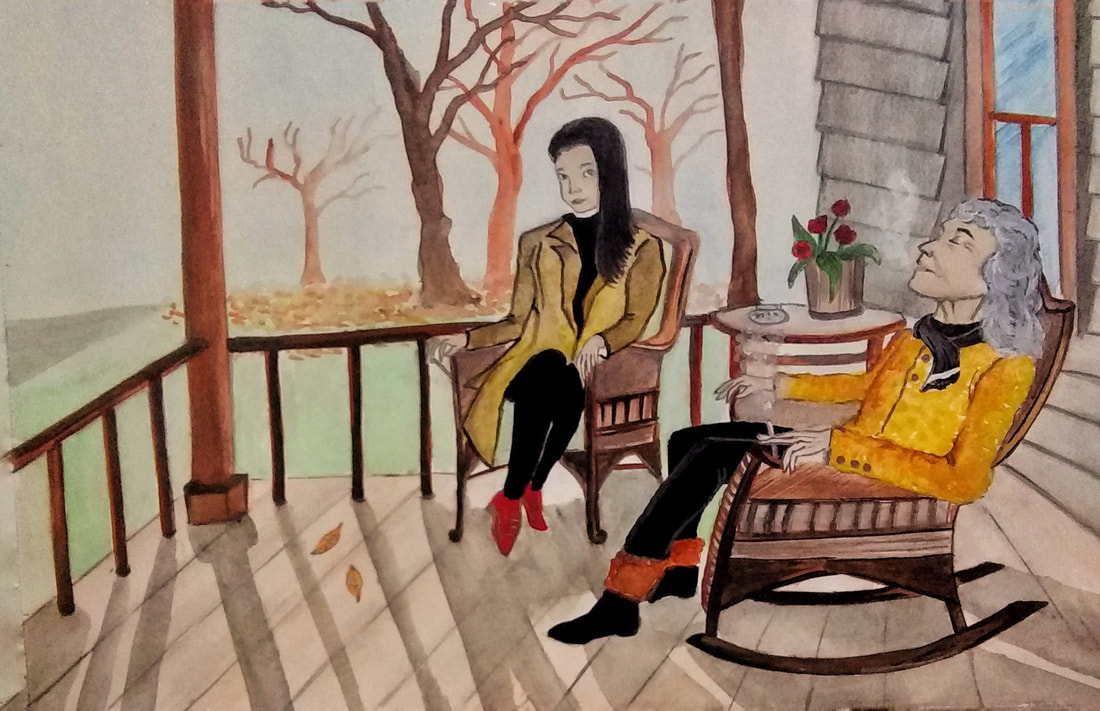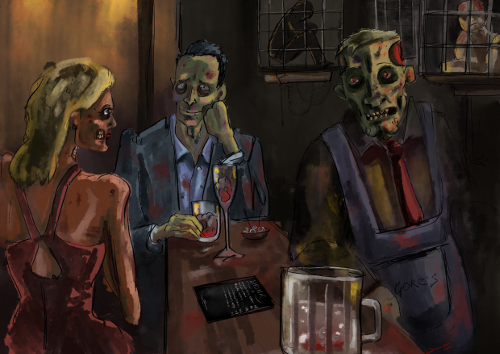Jane knew the girl was too young to be smoking, but she didn’t say anything. Who was she to criticise? She knew she shouldn’t be smoking either. She was far too old.
They lit up and sat shivering together, trying to crouch out of the reach of the wind and the drizzle, sheltered under the small overhang of Jane’s back porch.
Jane thought about lying, just as she had lied to the doctor, just as she lied to everyone who asked her that question. But Tracy was thirteen or fourteen and hated her mother and her school and everything about her life apart from these small, snatched conversations, and Jane found it difficult to lie to her.
So she said, “Every night,” which was the truth, and she sucked deep on the cigarette and closed her eyes and thought about what David would say if he could see her now.
“Have you, like, tried talking to him?” Tracy wanted to know. The girl had a thick accent Jane had struggled to understand when she had first moved back. She had lost her own accent years ago. But then, Jane had struggled to understand anything about her life when she had first moved back here. What was the accent of one lonely, angry girl when you put it next to losing the man you’ve loved for half a century? It had been such a small confusion. Perhaps that was why Jane had been drawn to the girl. She had been a tiny challenge, a puzzle slight enough to face. Making sense of the bigger problems had been impossible.
“No,” said Jane, staring out over the cluttered concrete backyard that the estate agent had belligerently referred to as a garden, despite all evidence to the contrary. “I know it’s not him. I know he’s dead, really. But I still see him. When people walk down the street, when I go into shops. I mean, I’m not mad or anything,” she added, giving Tracy a severe look.
“Oh,” said Tracy, looking down at her fingernails. They were painted neon green today, Jane noticed. She wondered what Tracy’s mother had to say about that. Probably nothing. The woman hardly seemed to notice her daughter most of the time. “Is that sort of normal, then?” Tracy asked.
“It happens sometimes,” said Jane, though the truth was she wasn’t sure, not anymore. The doctor had told her it would stop, that grief had strange fingers that played strange tunes with the way one made sense of the world. The doctor had said that it often happened after a bereavement, at least at first, seeing your dead husband getting onto the same bus as you, or on television, or crossing the street. But that had been more than a year ago now, when Jane had first come back to Birmingham, and there had been something unspoken in the doctor’s words, some hint that such distortions were normal, but only if they passed. If they persisted, perhaps they were not. They had not persisted last time, though that had been many years ago. She told herself it was because the grief was bigger this time, which wasn’t true. How could you compare two griefs that were both so huge? Surely something so massive was always unique...


 RSS Feed
RSS Feed